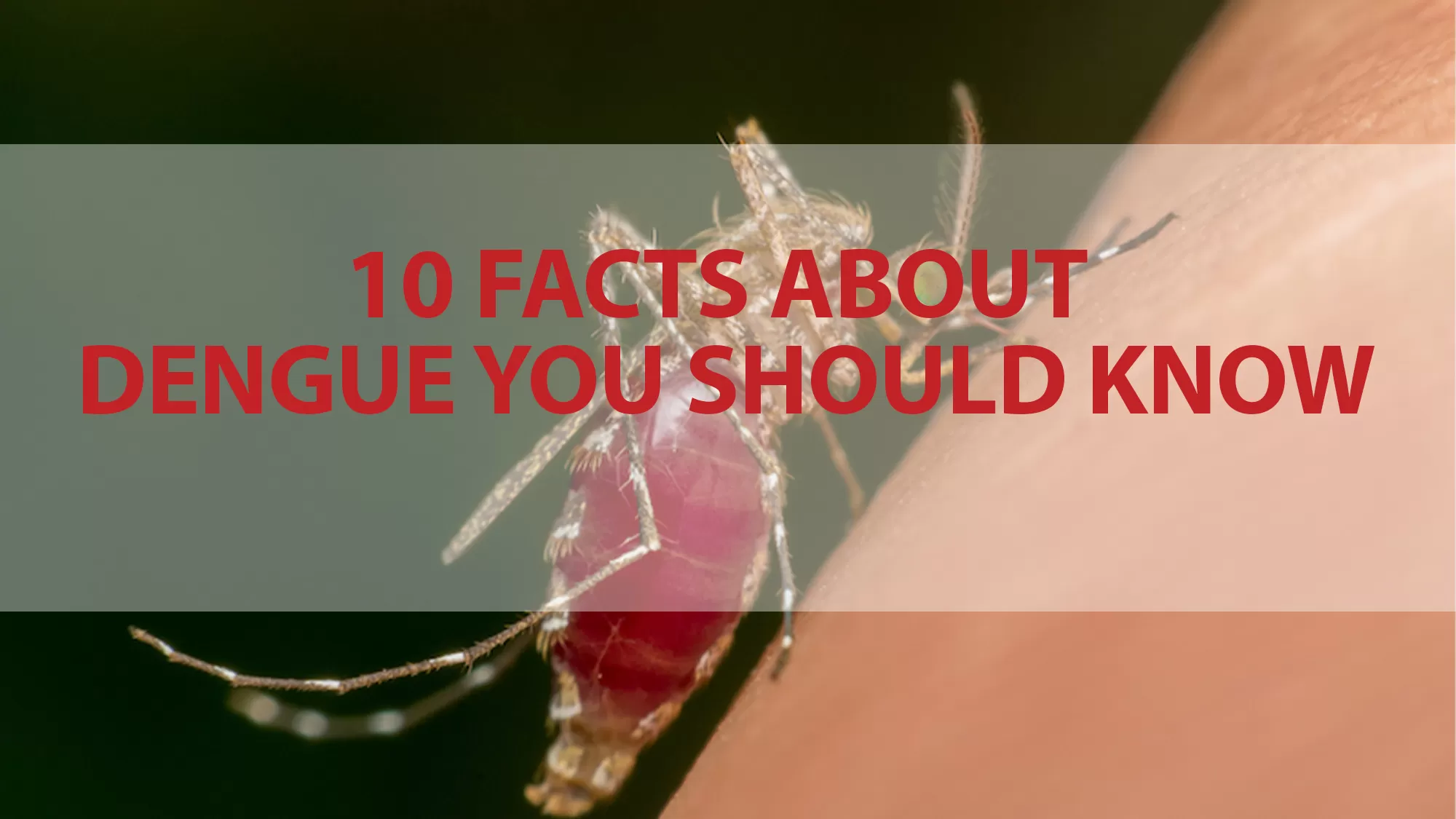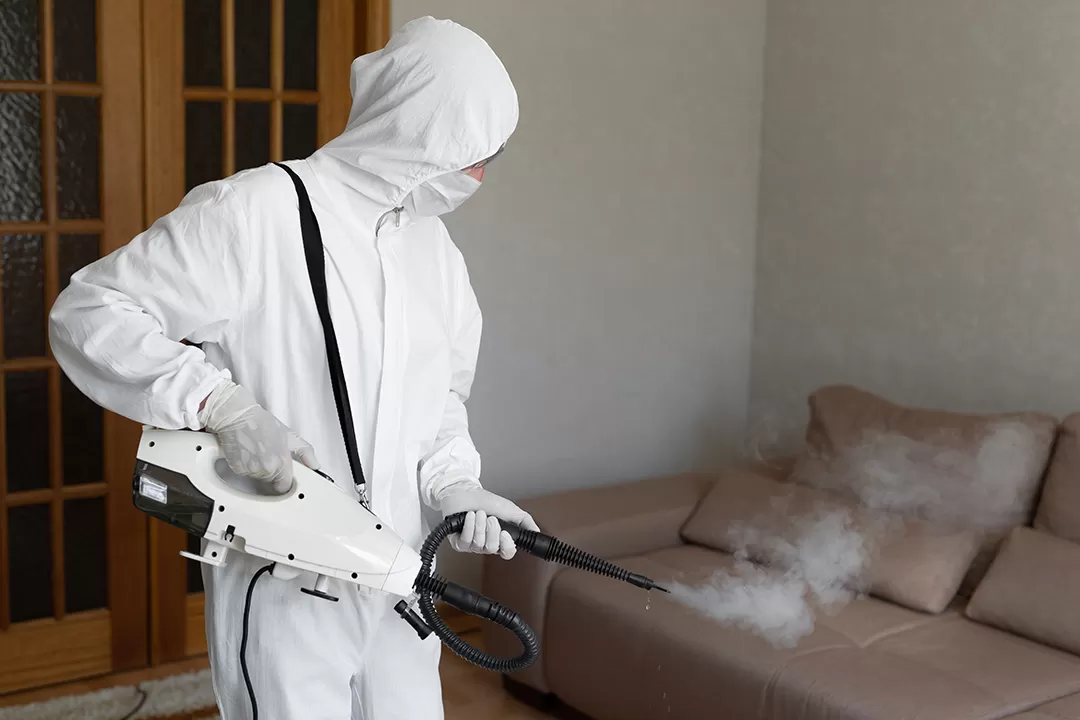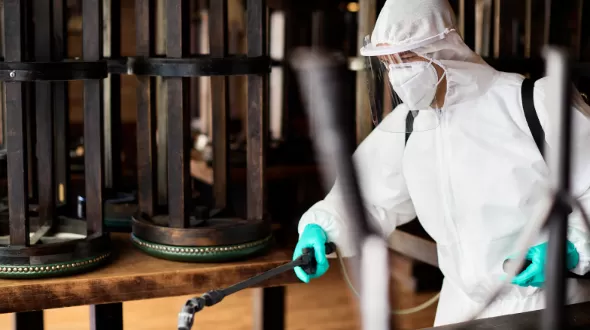People in some 129 countries around the world are troubled by Dengue – a dreaded disease instigated by something as subtle as a mosquito bite. Dengue may be a very common disease, yet people do not appear to have sufficient knowledge about it.
Over 400 million people are affected by Dengue each year. Yet, many people do not know how the disease spreads, how it can be prevented, or how to treat it. If you are one of them, help is here.
In this article, you will discover ten facts about Dengue that everyone should know. From prevention to cure to the severity of the disease itself – you can find out all you need to know about this potentially deadly viral infection.
Dengue Facts
Dengue Cases are Most Common in Tropical and Subtropical Climates
There are no particular limits for dengue outbreaks when it comes to place and time. As long as the weather is warm enough, the carrier mosquitoes can survive and be active. Dengue cases can be found in most countries around the world.
People risk getting Dengue in Asia, the Pacific Islands, the Middle East, Africa, and even the Americas. The only continent that is not affected by Dengue is Antarctica. The disease is, however, most common in tropical and subtropical areas.
The Dengue Virus Cannot Spread Through Human Contact
The dengue virus is spread via mosquito bites. Therefore, you do not need to worry about being in close contact with a dengue patient as the disease cannot spread through human contact.
You can only get Dengue if you are bitten by one species of carrier mosquito – a female Aedes mosquito. The carrier mosquitoes are notorious for biting during the daytime. They usually bite two hours before sunrise and right before sunset in the evening. Their favourite spots for biting are the knee and below the elbow.
Apart from this mosquito-to-human transmission, there is another way Dengue is transmitted. Believe it or not, mosquitoes can get infected with Dengue as well. Yes, mosquitoes get the dengue virus from infected humans and then spread it further when they bite others.
You Can Get Dengue Multiple Times
Dengue fever is caused by one of four dengue viruses (DENV): DENV-1, DENV-2, DENV-3, or DENV-4. The patient can get infected by multiple of these viruses simultaneously. However, a patient cannot be infected more than once by each of these as recovery from infection offers lifelong immunity against the serotype.
However, cross-immunity for the other serotypes is temporary and partial. An individual can get the dengue virus multiple times. As there are four DENV serotypes, one can get Dengue a total of four times. Note that a patient with a second dengue infection will have more risk of developing severe Dengue than a first-time dengue patient.
Pregnant Women Can Pass Dengue to Newborn Babies
Even though transmission through human contact is not possible, unborn babies can get Dengue from infected expecting mothers. When a pregnant woman is infected with Dengue, she can pass the infection to her fetus during pregnancy or to a newborn baby during childbirth. As a result, Dengue can have severe consequences like premature birth, low birth weight, and even death of the fetus.
Dengue Carrier Mosquitoes Breed in Stagnant Water
Mosquitoes, including Aedes mosquitoes, tend to thrive in urban areas near where a dense human population is present. For breeding, they prefer clean and stagnant water- easily available in most households. They only require a small amount of water in which to lay their eggs.
Stagnant water in containers, water bottles, or discarded waste is enough for mosquitoes to breed. Adult mosquitoes hide in dark areas of your house, such as in closets, behind curtains, and under beds, where they are not bothered by predators, rain, or wind.
Dengue is Easily Preventable
Did you know you can easily prevent Dengue by making some basic lifestyle and home adjustments? Yes, all four DENV virus strains spread through mosquito bites, so you can easily avoid them and eliminate your chance of getting infected by taking simple steps.
To do so, apply mosquito repellent at all times, even when at home. Wear long-sleeved clothes and trousers when outdoors. Spray insecticide under the bed, behind curtains and sofas, and in all dark corners of the house. Air conditioning in the home is also helpful as mosquitoes do not thrive in cool environments.
Make sure mosquitoes stay away from your house. Secure your home with door and window screens, and check that the screens are free of holes. If your sleeping area is not securely screened, use mosquito nets at night. Most importantly, prevent the breeding and growth of mosquitoes by removing all stagnant water at home.
Dengue Can be Diagnosed Through a Blood Test
Diagnosis of Dengue can be rather difficult. Doctors might suspect a case of Dengue based on the patient’s symptoms and recent travel history. Some symptoms of Dengue you may experience for the first two to three days include high fever, severe headache, eye pain, severe pain in joints, back, and legs, and rashes on your face. You may feel better for a day, then the fever will come back, and you will also notice rashes on your face, chest, arms, and back.
The problem is these are also common symptoms of other diseases such as typhoid, leptospirosis, and malaria. The only way to get a confirmed diagnosis is through a blood test to check for the dengue virus or dengue antibodies.
A Cure for Dengue Has Not Been Developed Yet
There is no specific medicine that can kill the dengue virus. Even though there is no cure for the virus, the symptoms that come with an infection can be alleviated. Paracetamol or acetaminophen are commonly prescribed for muscle aches, pains, and fever.
You must also stay well hydrated with lots of electrolytic fluids and water. Note that dengue patients should not take ibuprofen or aspirin as it can worsen their health and even cause bleeding.
If Left Untreated, Dengue Can Be Fatal
Many dengue infections are mild but severe Dengue, known as dengue hemorrhagic fever, can be life-threatening. In addition to other dengue symptoms, severe Dengue can cause symptoms like bleeding from your mouth, nose, rectum, and even under the skin. Low blood pressure is also a common symptom.
If identified early and treated properly, patients can recover from even severe Dengue. However, failure to do so can lead to shock and death.
Dengue Patients Should Avoid Painkillers
When affected by Dengue, the patient must strictly avoid some medications. As severe Dengue leads to blood thinning, dengue patients should steer clear of non-steroidal anti-inflammatory drugs (NSAIDs). NSAIDs such as aspirin, ibuprofen, and other painkillers can worsen the condition by thinning the blood further. Taking these painkillers can increase the chances of severe Dengue for a mild dengue patient.
Conclusion
Even though Dengue is a very common viral infection around the globe, people are not well-informed about the disease. Now, you know that Dengue is more prevalent in tropical regions but can be easily avoided by taking some preventive measures. You should regularly get pest control done in and around your house to keep the mosquitoes at bay.
It is diagnosed through a blood test, but there is no direct cure for the virus. Therefore, it is important to quickly identify and confirm a dengue infection and then combat the symptoms. Otherwise, your health may deteriorate, and you might develop severe Dengue – a condition which can have fatal consequences.







